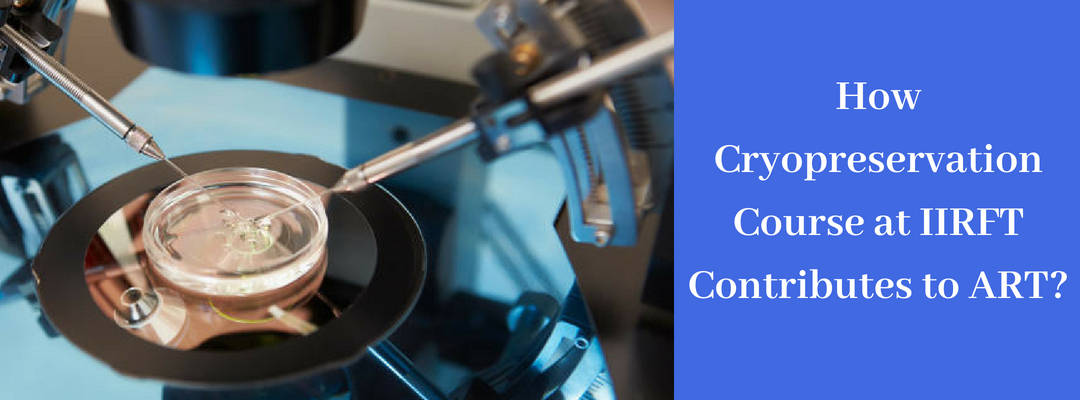
Cryopreservation is a process that involves freezing biological samples such as cells, tissues, and organs at low temperatures to preserve their viability and function. It plays a critical role in many areas of life sciences, such as biotechnology, medicine, and agriculture. As the demand for cryopreservation techniques continues to grow, it’s essential to keep up with the latest advancements and best practices in the field.
An advanced course in cryopreservation can provide you with a deeper understanding of the science and technology behind this process. The course may cover subjects such as:
- Fundamentals of cryopreservation: You will learn about the underlying principles of cryopreservation, including the effects of low temperatures on biological samples, the role of cryoprotectants, and the methods of cooling and warming.
- Cryopreservation protocols: The course will delve into different cryopreservation protocols, including slow cooling, vitrification, and high-pressure freezing. You will learn about the advantages and disadvantages of each method, and how to select the most appropriate one for a particular application.
- Cryopreservation applications: Cryopreservation has a wide range of applications, including the preservation of human and animal cells, tissues, and organs, as well as plant seeds and embryos. You will learn about the specific requirements and challenges associated with each application.
- Quality control and quality assurance: Cryopreservation is a complex process that requires strict adherence to quality control and quality assurance protocols. You will learn about the methods and procedures used to monitor and validate the quality of cryopreserved samples.
- Emerging technologies and trends: The course will also cover the latest advancements and trends in cryopreservation, including new cryoprotectants, freezing equipment, and computer modeling techniques.
An advanced course in cryopreservation is ideal for those who have a background in the life sciences and want to gain a deeper understanding of this field. It’s also a great opportunity for professionals who work in cryopreservation laboratories, including researchers, technicians, and managers, to enhance their skills and knowledge.
An advanced course in cryopreservation is an excellent investment for anyone who is interested in this field or who wants to expand their career opportunities. With the right training, you can gain a comprehensive understanding of the science, technology, and applications of cryopreservation, and become a leader in this exciting and rapidly evolving field.
What You’ll Learn in Advanced Course in Cryopreservation ?
The Advanced Course in Cryopreservation is designed to provide comprehensive knowledge and hands-on experience in the preservation of biological samples using cryogenic techniques. Participants in this course will learn:
- The basics of cryopreservation: Participants will learn the principles behind cryopreservation, including the physical and chemical changes that occur during the freezing process and the impact of these changes on the viability and functionality of the samples.
- Techniques for sample preparation: Participants will learn the best practices for preparing samples for cryopreservation, including washing, labeling, and processing techniques that minimize damage and ensure optimal preservation.
- Methods for freezing and thawing: Participants will learn various methods for cryopreserving biological samples, including slow-freeze and rapid-freeze techniques, as well as the best practices for thawing samples without causing damage.
- Quality control and storage: Participants will learn the importance of proper storage conditions for cryopreserved samples, including temperature, duration, and environment, as well as techniques for monitoring and maintaining sample quality over time.
- Applications of cryopreservation: Participants will learn the various applications of cryopreservation in areas such as biobanking, fertility preservation, and regenerative medicine, and the benefits and limitations of each application.
- Emerging trends and innovations: Participants will learn about the latest advances in cryopreservation technology and techniques, including the use of cryoprotectants, high-pressure freezing, and vitrification, and their potential impact on the field of cryopreservation.
By the end of the course, participants will have a deep understanding of the principles and practices of cryopreservation and the skills to apply these techniques in their own research or work.
The Eligibility Criteria For an Advanced Course in Cryopreservation
The institution that offers the course explains the eligibility criteria for an advanced course in cryopreservation. The requirements are as follows:
- Educational Background: The candidate should have a minimum of a bachelor’s degree in a relevant field, such as biology, biochemistry, or biomedical sciences.
- Work Experience: Prior experience in a related field, such as cryobiology, biotechnology, or cell culture, is often preferred.
- Technical Skills: Candidates should possess strong technical skills and a good understanding of laboratory procedures and techniques.
- Knowledge of Cryopreservation: A solid understanding of the principles and techniques of cryopreservation is essential for success in this course.
- Personal Qualities: Candidates should have excellent organizational, problem-solving, and communication skills, as well as a strong work ethic and a desire to continuously learn and improve.
The eligibility criteria for an advanced course in cryopreservation typically include a relevant educational background, work experience, technical skills, knowledge of cryopreservation, and personal qualities that are essential for success in this field.
Methodology of the Training in Advanced Course in Cryopreservation
The methodology of the advanced course in cryopreservation should include the following steps:
- Introduction to the concept of cryopreservation: An overview of the basic principles of cryopreservation, including the history, applications, and current trends in the field.
- Theoretical foundations of cryopreservation: This section will cover the underlying scientific principles of cryopreservation, including thermodynamics, cryobiology, and molecular biology.
- Hands-on training in cryopreservation techniques: Participants will be provided with opportunities to practice different cryopreservation techniques in a laboratory setting, under the supervision of experienced instructors.
- Advanced cryopreservation techniques: This section will cover advanced techniques such as vitrification, encapsulation-dehydration, and two-step freezing, as well as the use of cryoprotectants and cryopreservation methods for specific cell types.
- Cryopreservation of biological materials: This section will cover the cryopreservation of a wide range of biological materials, including cells, tissues, organs, and gametes.
- Quality control and monitoring: Participants will learn about the importance of quality control and monitoring in cryopreservation, including the use of viability assays, cryopreservation media, and monitoring equipment.
- Ethical and regulatory considerations: This section will cover ethical and regulatory considerations in cryopreservation, including the use of informed consent, handling of human materials, and regulatory compliance.
- Case studies and applications: Participants will be exposed to real-world case studies and applications of cryopreservation in different fields, including biotechnology, regenerative medicine, and conservation biology.
The course should be taught through a combination of lectures, hands-on laboratory sessions, and case studies. It should also include opportunities for participants to interact with industry experts and leading researchers in the field of cryopreservation.
Educational Teaching Methods in Advanced Course in Cryopreservation
The advanced course in cryopreservation can utilize a variety of educational teaching methods to ensure that participants have a well-rounded and engaging learning experience. Some of the most commonly used teaching methods include:
- Lectures: Lectures can provide a comprehensive overview of the theories and concepts of cryopreservation. They can be delivered by experienced instructors, industry experts, or leading researchers in the field.
- Hands-on laboratory sessions: Hands-on laboratory sessions can provide participants with practical experience in cryopreservation techniques. Participants can practice different methods and techniques under the supervision of experienced instructors.
- Case studies: Case studies can provide real-world examples of how cryopreservation is applied in various fields, such as biotechnology, regenerative medicine, and conservation biology. Participants can analyze and discuss these case studies, which can help to enhance their understanding of the practical applications of cryopreservation.
- Group projects: Group projects can encourage collaboration and problem-solving skills, as well as allow participants to apply the concepts and techniques learned in the course.
- Interactive discussions: Interactive discussions can promote active learning and encourage participants to share their perspectives and experiences. This can be achieved through panel talks, Q&A sessions, and group discussions.
- Online learning resources: Online learning resources, such as videos, articles, and simulations, can supplement the traditional classroom-based teaching methods. These resources can provide participants with additional opportunities to learn and review the material covered in the course.
The teaching methods used in the advanced course in cryopreservation should be designed to engage participants, promote active learning, and provide a comprehensive and well-rounded learning experience.
Evaluation of Trainee in Advanced Course in Cryopreservation
The evaluation of trainees in an advanced course in cryopreservation should be designed to assess their understanding of the course content and their ability to apply the concepts and techniques learned in the course. Some commonly used evaluation methods include:
- Written exams: Written exams can test trainees’ knowledge of the theories and concepts of cryopreservation. Short-answer, true-or-false, and multiple-choice questions may be on the tests.
- Practical exams: Practical exams can assess trainees’ ability to apply the cryopreservation techniques learned in the course. Trainees can be evaluated on their ability to perform the techniques accurately and efficiently.
- Group projects: Group projects can assess trainees’ ability to apply the concepts and techniques learned in the course to real-world problems. Trainees can be evaluated on the quality of their work and their ability to collaborate with their group members.
- Case studies: Case studies can be used to assess trainees’ ability to analyze real-world applications of cryopreservation and apply the concepts learned in the course.
- Oral presentations: Oral presentations can be used to assess trainees’ ability to communicate their knowledge and ideas effectively. Trainees can be evaluated on their presentation skills, including their clarity, organization, and engagement with the audience.
The evaluation methods used in the advanced course in cryopreservation should be designed to provide a comprehensive assessment of trainees’ knowledge and abilities. The methods should also be designed to encourage trainees to engage in active learning and to continuously improve their understanding and skills in cryopreservation.
Advanced Course in Cryopreservation
Duration : 3 Days
Eligibility Criteria
BSC, MSC or any other life science background, BVSC, MVSC, BHMS, BAMS, BUMS, MBBS, MD, MRCOG, FRCOG or any medical degree, etc…
Course Objectives
Advanced Course in Cryopreservation
This module provides detailed theoretical and practical knowledge of Cryopreservation of sperms and embryos. The course deals exhaustively familiar with freezing techniques, instruments and protocols related to sperm, oocytes, embryos and blastocysts.
Methodology of the Training
- Fundamentals of Cryopreservation
- Usage of different types of Cryo-media
- Freezers & their functioning
- Sperm cryopreservation methods and limitations
- Embryo cryopreservation methods and limitations
- Vitrification concept, development, methods and limitations
- Cryopreservation of epididymal and vas deferens aspirates (Demonstration only)
- Isolation and cryopreservation of sperm from testicular biopsy specimens (Demonstration only)
- Protocol for cryopreservation of ovarian tissue from cancer patients (Demonstration only)
- LN2 Transfer from & to on cryo-can
- Filling of LN2 in to programmable freezer
- Demo of programming for various samples loading of cryo-straw
- Labeling of cryo-straw
- Cryopreservation of sperm
- Storing of cryo-straw/ vials in Canister
Discussion
- Slow freezing versus vitrification
- Comparison between different vitrification systems and devices
- Improving survival rates
Educational Teaching Methods
- Interactive discussion and teaching sessions
- Hands-on laboratory training sessions
- Live lectures and multimedia presentations
Evaluation of Trainee
Knowledge : Multiple-choice questions on lab techniques linked to each course module.
Practical skills : Tested on specific lab techniques taught during the training.
Verbal and communication skills : PPT talk on a topic linked to a course module.
Each Participant Will Receive
- Course Syllabus with Reading Material and Lab Protocols
- Controlled Access to the State-of-the-art lab at International Fertility Centre
- Certificate of Training (issued upon successful assessment by the instructor)
NOTE:
- Travel and accommodation is extra, IIRFT can provide assistance in arranging.
